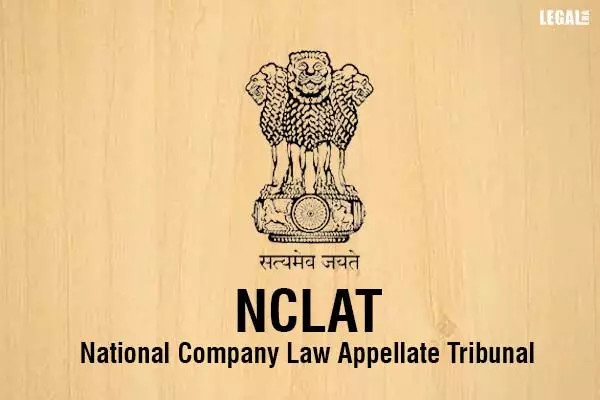- Home
- News
- Articles+
- Aerospace
- Artificial Intelligence
- Agriculture
- Alternate Dispute Resolution
- Arbitration & Mediation
- Banking and Finance
- Bankruptcy
- Book Review
- Bribery & Corruption
- Commercial Litigation
- Competition Law
- Conference Reports
- Consumer Products
- Contract
- Corporate Governance
- Corporate Law
- Covid-19
- Cryptocurrency
- Cybersecurity
- Data Protection
- Defence
- Digital Economy
- E-commerce
- Employment Law
- Energy and Natural Resources
- Entertainment and Sports Law
- Environmental Law
- Environmental, Social, and Governance
- Foreign Direct Investment
- Food and Beverage
- Gaming
- Health Care
- IBC Diaries
- In Focus
- Inclusion & Diversity
- Insurance Law
- Intellectual Property
- International Law
- IP & Tech Era
- Know the Law
- Labour Laws
- Law & Policy and Regulation
- Litigation
- Litigation Funding
- Manufacturing
- Mergers & Acquisitions
- NFTs
- Privacy
- Private Equity
- Project Finance
- Real Estate
- Risk and Compliance
- Student Corner
- Take On Board
- Tax
- Technology Media and Telecom
- Tributes
- Viewpoint
- Zoom In
- Law Firms
- In-House
- Rankings
- E-Magazine
- Legal Era TV
- Events
- Middle East
- Africa
- News
- Articles
- Aerospace
- Artificial Intelligence
- Agriculture
- Alternate Dispute Resolution
- Arbitration & Mediation
- Banking and Finance
- Bankruptcy
- Book Review
- Bribery & Corruption
- Commercial Litigation
- Competition Law
- Conference Reports
- Consumer Products
- Contract
- Corporate Governance
- Corporate Law
- Covid-19
- Cryptocurrency
- Cybersecurity
- Data Protection
- Defence
- Digital Economy
- E-commerce
- Employment Law
- Energy and Natural Resources
- Entertainment and Sports Law
- Environmental Law
- Environmental, Social, and Governance
- Foreign Direct Investment
- Food and Beverage
- Gaming
- Health Care
- IBC Diaries
- In Focus
- Inclusion & Diversity
- Insurance Law
- Intellectual Property
- International Law
- IP & Tech Era
- Know the Law
- Labour Laws
- Law & Policy and Regulation
- Litigation
- Litigation Funding
- Manufacturing
- Mergers & Acquisitions
- NFTs
- Privacy
- Private Equity
- Project Finance
- Real Estate
- Risk and Compliance
- Student Corner
- Take On Board
- Tax
- Technology Media and Telecom
- Tributes
- Viewpoint
- Zoom In
- Law Firms
- In-House
- Rankings
- E-Magazine
- Legal Era TV
- Events
- Middle East
- Africa
NCLAT Delhi dismisses application which was filed under section 9 of the IBC for recovery of balance interest amount

NCLAT Delhi dismisses application which was filed under section 9 of the IBC for recovery of balance interest amount
The National Company Law Appellate Tribunal (in short NCLAT), Principal Bench, through its division bench comprising of Justice Ashok Bhushan (Chairperson) and Mr. Barun Mitra (Technical Member), while adjudicating an appeal filed in Permali Wallace Pvt. Ltd. vs. Narbada Forest Industries Pvt. Ltd. upheld the Adjudicating Authority's decision in rejecting Section 9 of the Insolvency and Bankruptcy Code, 2016 (in short IBC) Application, which was filed merely for recovery of balance interest amount in view of a settlement agreement and not for resolution of the Corporate Debtor.
The Appeal was filed by the appellant/operational creditor- Permali Wallace Pvt. Ltd. against an order dated 3rd November, 2022 passed by the Adjudicating Authority (National Company Law Tribunal, Indore Bench) by which Application filed under Section 9 of the IBC, 2016 was rejected.
The Application was filed to invoke Corporate Insolvency Resolution Process (in short CIRP) against Narbada Forest Industries Pvt. Ltd. (in short Corporate Debtor). The principal amount in default was Rs. 1,74,16,527 along with an interest of Rs. 48 lakh. The Application was withdrawn by the Operational Creditor when the Parties entered into a settlement agreement dated 7th November, 2017. The Corporate Debtor paid Rs. 1,74,16,527 towards full settlement of principal amount and Rs. 16 lakh towards settlement of the interest component.
The Operational Creditor preferred yet another Section 9 Application before the Adjudicating Authority, claiming an additional amount of Rs. 1,28,00,000 towards the interest, which amount was disputed by the Corporate Debtor.
The Adjudicating Authority vide its order dated 3rd November, 2022 rejected the Application filed under Section 9 of IBC. It was observed that the Application was filed for execution of terms of settlement agreement. The amount arising out of some settlement agreement cannot be termed as operational debt within the meaning of Section 5(21) of the IBC, 2016.
The Adjudicating Authority in its order stated, "we sincerely feel that the Operational Creditor has been using the IBC proceeding for recovery of disputed amount and which is not object of the Insolvency and Bankruptcy Code, 2016. On this ground alone, this application is not maintainable. Moreover, there appears to be a dispute about the terms of settlement agreement as far as calculation of interest amount is concerned. It cannot be resolved before this Adjudicating Authority."
The Operational Creditor filed an appeal before NCLAT challenging the order dated 3rd November, 2022.
Learned Counsel for the Appellant challenging the order contended that liberty was granted in the consent terms/settlement agreement that in event any breach is committed, the Application be revived. He further submitted that postdated cheques were bounced and Appellant filed Application under Section 9 was for recovery of the balance interest amount which was unpaid.
The Tribunal placed reliance on the Supreme Court judgment in Swiss Ribbon Pvt. Ltd. vs. Union of India, (2019), wherein it was held that IBC is not a recovery proceeding. The Bench opined that the Section 9 Application was only for recovery of balance amount of interest and not for resolution of the Corporate Debtor's insolvency.
The Bench upheld the decision of the Adjudicating Authority of dismissing the Application and accordingly, dismissed the appeal.



